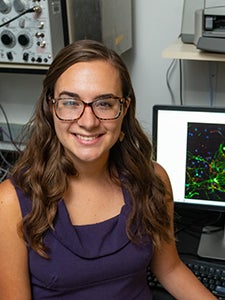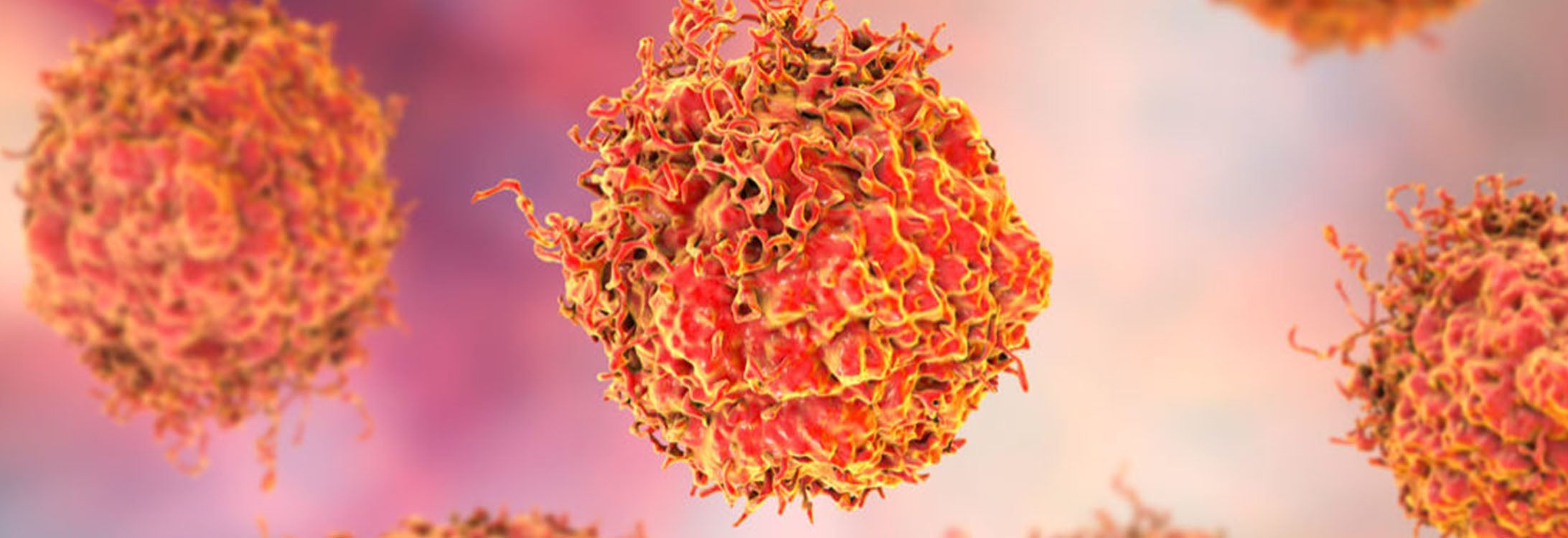Student Profile: Jennifer McMains

Undergraduate researcher Jennifer McMains is studying the effects of prostate cancer treatments on patients.
Mentor: Dr. Johanna Hannan
Department: Physiology
Project Title: “Neuritogenesis following radiation and castration”
My research focuses on the impact of prostate cancer treatments. The goal is to gain a better understanding of the damage that nerves sustain during prostate cancer treatments.
How did you get involved in undergraduate research?
Within my first semester at ECU I applied to work in the Hannan Lab and have learned so much. Dr. Hannan has helped me with not only research and science, but also my career!
Why did you choose your research topic?
I have worked in research relating to prostate cancer for the majority of my time at ECU. This project is a wonderful way to end my four years of research in the Hannan Lab.
What’s been your favorite part of conducting undergraduate research?
Conducting research as an undergraduate has truly connected my classroom learning to my future career of practicing medicine. I have gained so much understanding of the human body and disease, as well as all the work that goes into medical innovations. I believe that my time spent researching will make me a better physician.
What challenges have you faced while conducting undergraduate research?
Conducting research is very different than simply being in a class. Research has taught me to succeed while being autonomous and self-paced.
Why is your research important for the average, everyday person?
In my opinion, research is what makes a long-term impact. I know that my research will go on to be a part of the body of work that improves the life of prostate cancer survivors.
What’s your ultimate goal or accomplishment that you hope your research will help you achieve?
My goal is to become a practicing physician who is an active and useful contributor to her community. Research has allowed me to begin this contribution by providing a deeper understanding of prostate cancer treatments and impacts.
How do you feel that participating in undergraduate research has helped prepare you for life after college?
Research has taught me many useful bench skills, but also allowed me to scientific writing and presentations. It’s also given me a chance to grow with teamwork, commitment and integrity. These skills will all be extremely useful in medical school and beyond as a physician.
Do you have any advice for other students interested in conducting undergraduate research?
My advice is for students to get involved in research as soon as possible so they can spend three or more years working and learning.
